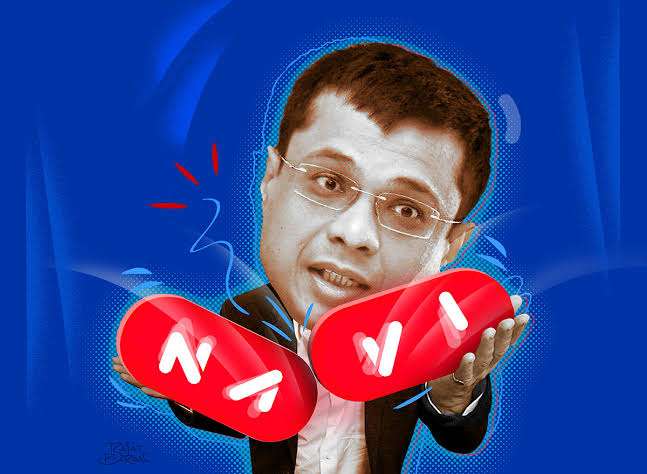Bansal, co-founder of Flipkart, is seeking funding for his Indian finance firm, Navi, with a potential valuation of $2 billion.
Sachin Bansal, co-founder of Flipkart, is currently in talks to raise funding for Navi, an Indian finance firm. Three people acquainted with the situation informed the media that Bansal is in talks with investors to raise capital and that the valuation of the company is approximately $2 billion. His target fundraising amount, according to one source, is $400 million to $200 million.
This would mark the first significant outside fundraising for the Bengaluru-based firm since its inception in 2018, as Bansal has mostly self-funded Navi thus far.
The terms and Bansal’s desire for outside investment are subject to change, given that the talks have not yet resulted in an agreement, the sources warned. No comment was offered by a Navi spokeswoman.
Financially, Navi—which provides clients with health insurance, personal loans, and mortgages—has been through some hard patches. According to documents submitted in 2022, Navi’s initial goal was to raise $440 million through a public listing. But last year, the business scrapped those ambitions due to the fall in the IPO market.
The fundraising discussions are a positive indicator for fintech on a global scale, as well as a major change in the Indian venture industry. Possible indications suggest that growth stage funding rounds are being reconsidered after a particularly challenging 2023, during which total startup funding in the nation fell by 73%.
Last month, media outlets reported that Pocket FM, an Indian audio-storytelling platform, is in talks to be backed by Abu Dhabi’s sovereign wealth firm, ADIA. Among the companies reportedly in discussions to fund additional growth-stage rounds are Rapido, an aggregator of bike-taxi services; Temasek-backed consumer nutrition platform HealthKart; and Indian eyewear business LensKart, according to Thursday’s Indian newspaper Economic Times. One person familiar with the situation informed reporters that Rapido, which is backed by Swiggy, has been in touch with investors, including Khazanah, the sovereign wealth fund of Malaysia, in the past few weeks.
According to a recent Bain analysis, significant funding rounds in India’s startup ecosystem declined sharply last year. This was due to a combination of factors, including a reduction in investments from global investors like Tiger Global and SoftBank and a shift in focus by domestic VC firms towards early-stage companies.
Many fintech investors are frightened because the Reserve Bank of India’s regulatory initiatives in recent years have affected businesses that issue cards and lend.
While Bansal was at the helm, Flipkart raised billions of dollars from an impressive array of financial and strategic backers, making it an innovator among Indian businesses. In 2018, he made a $1 billion windfall and decided to leave the firm. That same year, he established Navi and decided to use a bootstrapped method.
This may be Navi’s first external financing, but it doesn’t imply Bansal hasn’t been in touch with potential backers. The fintech reportedly met with SoftBank and other possible investors before filing for an initial public offering. The previously reported rejection of Navi’s application for a banking license by the country’s central bank put an end to those conversations.
In recent quarters, Navi has honed in on a specific area. A “strategic plan to focus on our digital-first businesses,” according to Bansal, led to the August sale of microfinancing firm Chaitanya India for $178.5 million.
Moneycontrol, an Indian news organization, aired an interview with Bansal on Tuesday in which he stated that he will relaunch the IPO in “a few months, once we are ready.”
Bansal is still considering making Navi a bank. “At this point in time, I would say we have put them on hold until we determine if it is a future possibility,” he informed the Indian news source. “When the regulator gives the go-ahead, we’ll pick up again at the correct moment.”












